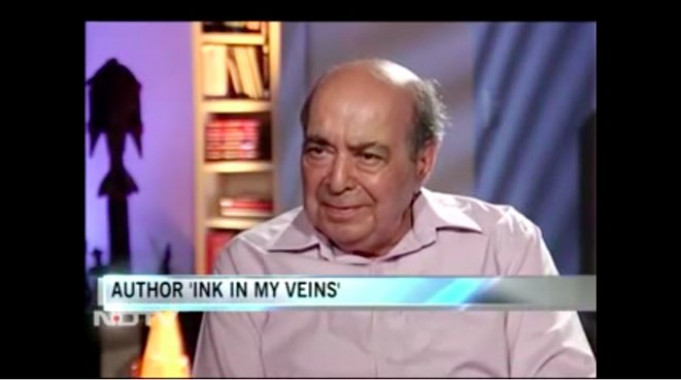Nihal Singh: a journalism stalwart passes on
Reprinted from the The Tribune, Chandigarh
It is hard to find the words to describe the colleague and friend who in the last few decades became more of a family member, as he lies awaiting his last rites, blood congealing cold in the veins from which ink freely flowed till just the last couple of weeks.
Nihal’s love of journalism – so ably documented in his memoir ‘Ink in My Veins’ – was such that even between the frequent bouts in the hospital with several surgeries since last December, he could and did bounce off trenchant pieces of criticism, one on the Prime Minister – his particular bete noire, as secularism and freedom of speech was the creed by which Nihal lived and his book ‘Modi’ counterpointed. “I was so incensed with what Modi is saying that I just had to write,” he cheerily told me over the phone sounding so much the better for having done so. And even as he lay seriously ill he planned – “I think I will have to stop the regular column writing but I will arrange instead to spin off an article as and when I feel the urge.”
As a person Nihal was always a poised gentleman, gracious, well-mannered, punctual to a fault; but in professional life his political analysis and prose, concise and precise, knocked holes in super-flated political egos with a delight that he loved to recall with equal delight.
I first met Nihal 61 years ago – when I walked into The Statesman News Editor’s room with a clutch of stories to sell while he, then still an intrepid staff reporter bored with his daily assignments, was selling the News Editor the line that there were no celebrities in town to cover! His sheepish face during that encounter was more than compensated when I next encountered him – now in my husband’s barat – as best man alongside the late Inder Malhotra and the late Bikram Singh. The four formed a formidable male gang, the most irreverent this side of the Suez, who collectively gave me such a tough time with their irascible wit and leg-pulling that in later years I evened out by labelling them as The Gang of Four. But those were the happy years of our youth when the men traded risqué stories and Nihal and my husband, Viren, vied to bring an extra cigar for the other to show off having dined with some ambassador!
Nihal’s days of glory came much later, as he moved from reporter to foreign correspondent – Islamabad, Moscow, Singapore, Paris- then as Resident Editor of The Statesman in which capacity he mainly took the flak of blank spaces and much more as the newspaper refused to be cowed down by the censors during the Emergency Days that was to cover The Statesman with glory that C.R. Irani, Statesman’s then Managing Director largely appropriated.
However, Nihal Singh was also acclaimed and did receive the International Editor of the Year Award in New York in 1978. But soon Nihal broke with Irani and moved onto The Indian Express and still later to try and bring out a new national newspaper The Indian Post. His travels across the world had already made him a much sought after foreign affairs expert but wearying of the slender offerings the Indian press gave even its best in those days he finally went off to edit the Khaleej Times in Dubai – “So that I can retire to write books in India and drink good whisky with my friends” he would tell us whenever he came to Delhi, when he made a point of spending an evening with us.
His beloved wife, Ge, died while he was still in Dubai and so lonely and seeking the warmth of family and friends he returned and gamely looked for a suitable senior vantage point from which to say his piece. But the media had changed beyond recognition by then and those with “the ability to remain true to oneself” were not in demand anymore. It is to Nihal Singh’s credit he did not let this frustrate him. He gamely wrote his books – nearly a dozen in all – and his columns and the occasional TV panel. For the Prem Bhatia Memorial Trust he ably convened and chaired the selection of the most outstanding political journalist each year.
He remained a true friend frequently visiting us as my husband ailed over the last few years, listening gravely and with respect to all that was said around him and recounting his own stories with his characteristic economy of words and dry humour, nursing and relishing his single malt. And at the IIC Saturday Discussion group, where he had the chair next to the Chair reserved for him after another dear friend Krishen Katyal passed away, he always asked a succinct single question and quietly presented the speaker with an on-the- spot sketch: a talent lesser than his gift for words but which he liked to pursue as diligently. He will be sorely missed not only there. The media space is poorer today because a principled man of words is gone.
Rami Chhabra is a veteran journalist.







